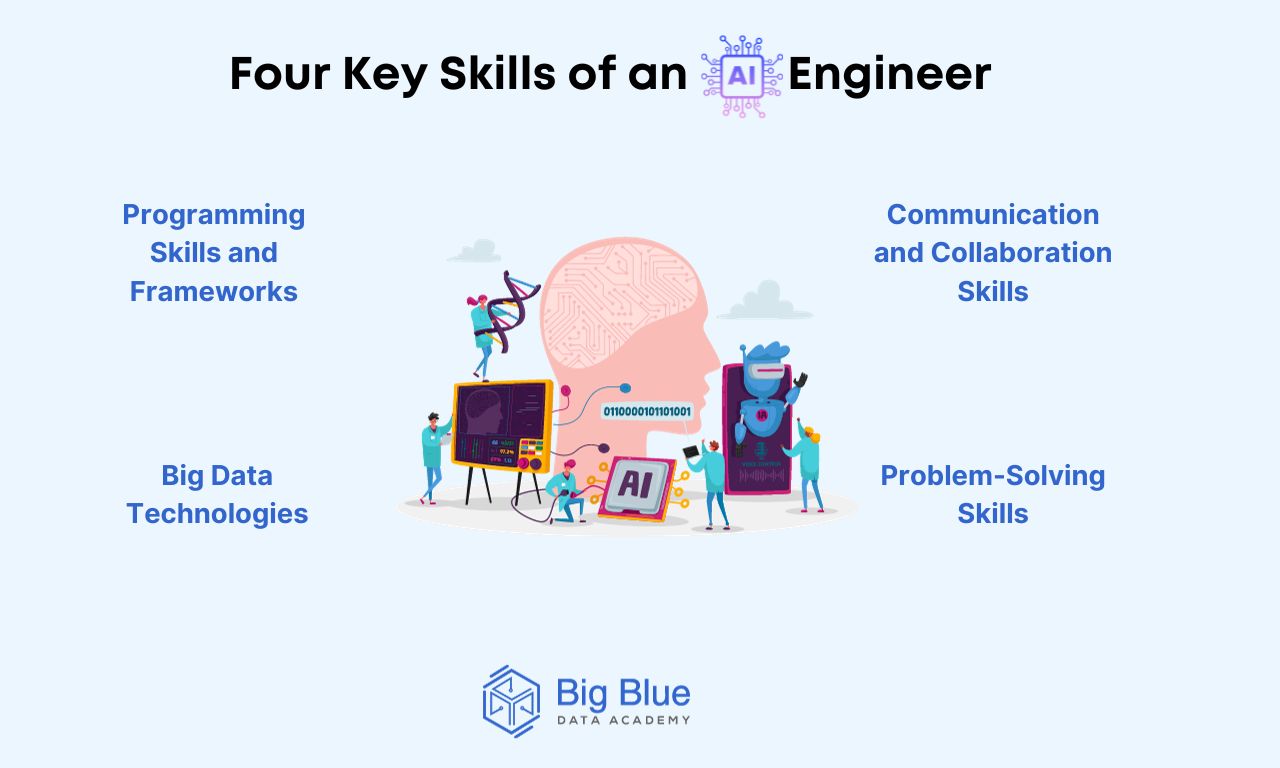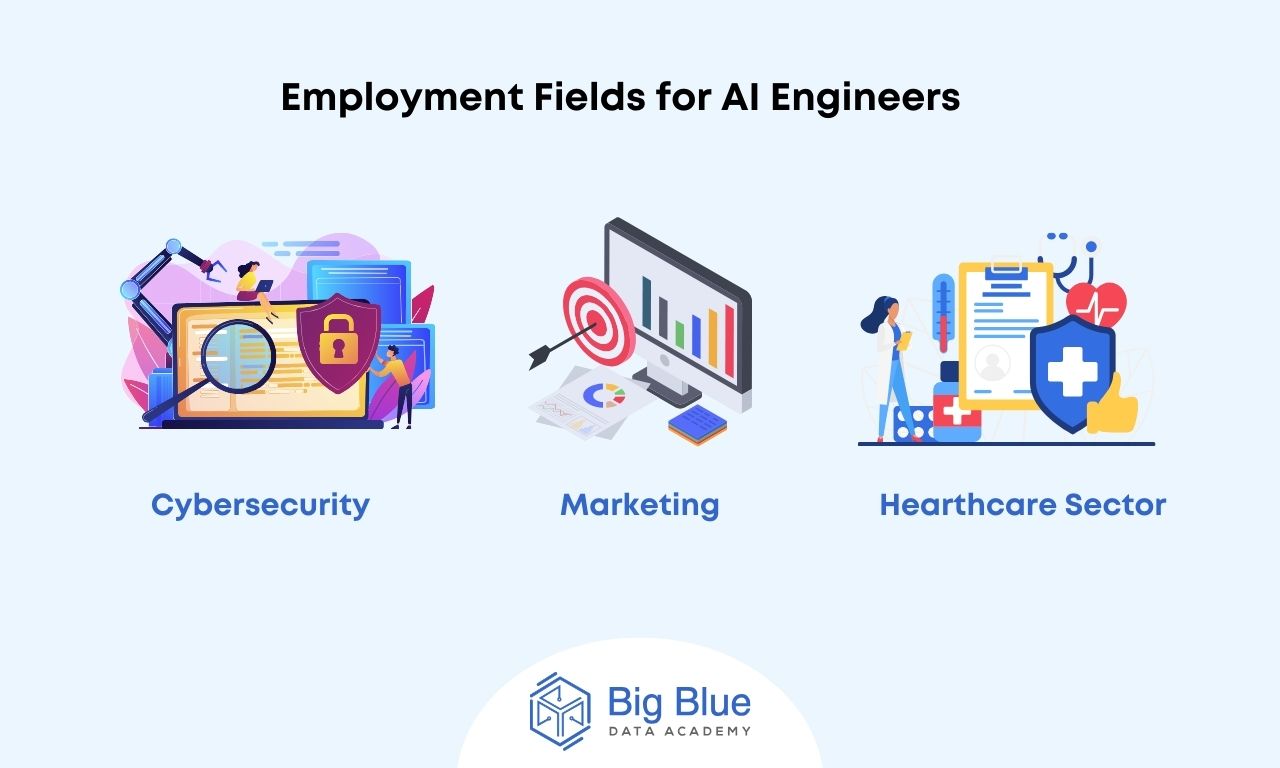What is an AI Engineer: Definition & Role
As artificial intelligence continuously brings forth new developments in all fields, new professions are constantly emerging.
One of these professions with significant potential and excellent career prospects is that of an AI engineer.
In today's article, we will explore:
- What an AI engineer is
- What their responsibilities and skills are
- What the areas of employment of an AI engineer are and what salary they get
First, let’s start with a basic definition.
What is an AI Engineer?
An AI engineer is a professional who uses AI and machine learning techniques and tools to develop applications and systems that enhance efficiency, reduce costs, and facilitate informed decision-making for businesses.
A key aspect of their work involves converting AI models into application program interfaces (APIs) so that these models can be used in other software applications.
AI engineers are generally responsible for programming and training complex algorithmic networks to function in a manner similar to the human brain.
Let's now discuss some of the skills and attributes of an AI engineer.
4 Key Skills of an AI Engineer
To excel in their role, an AI engineer needs to possess both hard and soft skills.

Let's take a closer look at these skills:
Programming Skills and Frameworks
To begin with, an AI engineer needs to stay updated on technological advancements and possess knowledge of programming languages.
Understanding programming languages such as Python, R, Java, and C++ is crucial for creating and implementing AI models.
Furthermore, for working with unstructured data to develop AI models, it's important to have expertise in deep learning algorithms, like convolutional neural networks, and apply them using a framework such as PyTorch.
Big Data Technologies
As an AI engineer, you'll often work with large volumes of data, also known as big data.
To handle complex and extensive datasets, you'll need knowledge of technologies like Apache Spark, Hadoop, Cassandra, and MongoDB.
Communication and Collaboration Skills
Data teams within a company often work in hybrid or remote environments and consist of professionals with varying skill levels and specializations, such as data scientists and data analysts.
AI engineers regularly need to communicate with these team members and are responsible for automating the infrastructure used by the data science team.
Therefore, developed communication and collaboration skills are essential for conveying complex ideas while maintaining team productivity.
Problem-Solving Skills
AI models can sometimes be challenging to implement with precision.
Therefore, an AI engineer needs to think creatively, manage their time effectively, and be capable of solving problems that may arise suddenly and in real-time.
Now, let's explore the various fields where an AI engineer can work.
Employment Fields for AI Engineers
An AI engineer is a profession with excellent salary prospects.

According to Glassdoor, the annual median base salary for an AI engineer is $107,991 in the United States.
Now, let's delve into the specific fields where an AI engineer can find employment.
Field #1: Cybersecurity
An AI engineer can work in the cybersecurity sector, which has a growing demand due to the increasing number of cyberattacks.
In this role, an AI engineer can train cybersecurity programs to detect and take additional measures against malicious software, hackers, and suspicious behavior using large datasets.
Field #2: Marketing
The marketing industry offers numerous employment opportunities, given the abundance of data collected.
In this role, AI engineers create AI programs for data collection, trend recognition, and customer interactions.
Field #3: Healthcare
AI models can significantly enhance various aspects of the healthcare industry.
AI models aid in diagnosing diseases, creating patient care plans, optimizing administrative data, and enhancing the patient experience based on individual needs.
Ramping Up
We've discussed the role of an AI engineer, the essential skills they should possess, and some key areas of professional employment.
Artificial intelligence is rapidly evolving, offering a multitude of possibilities.
In case you wanna shape up the future and develop your very own AI Agents enroll in our AI Engineering bootcamp now!


.jpg)